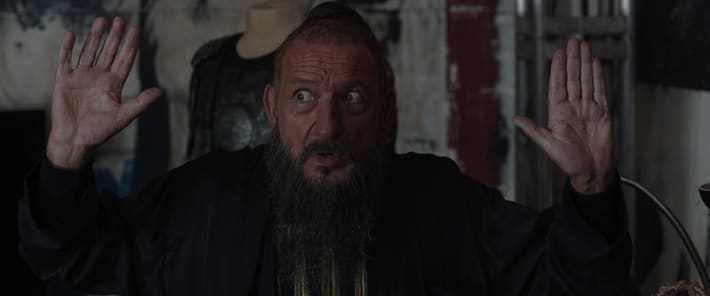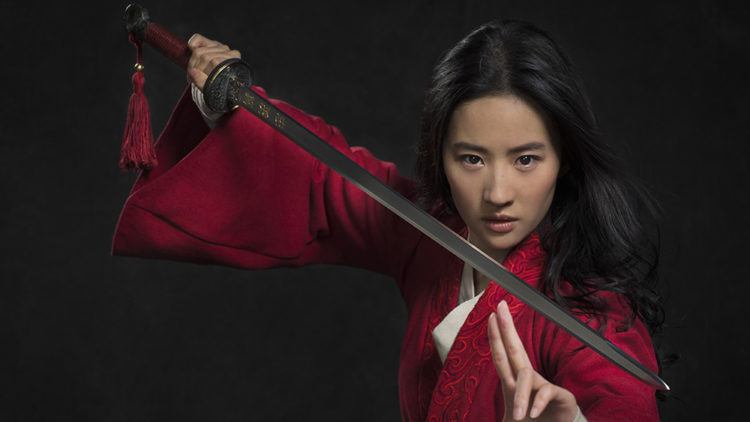Hong Kong protestors, spurred initially by new legislation that would allow Hong Kong residents to be extradited to mainland China, have faced a great deal of opposition at home. Local police have been accused of resorting to brutal tactics to stem the growth of what Chinese officials are calling “riots,” and the United Nations has called for an independent investigation into what they called “considerable evidence” that law enforcement has been using non-lethal weapons in ways that violate international law against the crowds.
Satellite images and pictures uploaded to social media now show Chinese military vehicles staging in and around the semi-independent state, prompting fears that these Hong Kong protests could soon take a turn toward recreating the tragic events of Tiananmen Square in 1989 — an incident in which the Chinese military opened fire on protestors using small arms and even tanks, that has since been suppressed throughout Chinese media.
Here in the United States, Americans on both sides of the political aisle have shown support for the plight of Hong Kong residents, some of whom have taken to carrying American flags and singing America’s national anthem throughout their protests, both in an effort to garner American attention and as a demonstration of their desire for democratic rule without the oppressive thumb of Xi Jinping’s Chinese regime.
Protestors have demanded the following:
- The withdrawal of a proposed bill allowing Hong Kong residents to be extradited to China
- A third party investigation into allegations of police brutality
- Dropping all charges against those arrested in the course of these protests
- An end to calling the protests “riots” in order to discredit them
- Reformed voting laws
But amid this groundswell of support, Liu Yifei, the Chinese-American star of Disney’s upcoming live action remake of Mulan, took to the Chinese social media platform Weibo to voice her support for the Hong Kong police that have been accused of violently oppressing the protests. Almost immediately, American pundits chimed in, and soon #BoycottMulan was a trending topic of Twitter… but it’s safe to say that Disney execs aren’t breaking a sweat on this one. The Chinese market is simply too large and too profitable to care about the opinions of politically active Americans.
As a concerned HK Citizen, thank you for speaking up!
Much appreciated 🙏🏼🇭🇰
We HK Citizens oppose separation of HK & China, but hope the gov’t will respond positively to our 5 Demands, including democracy, as promised in the Basic Law, HK’s de-facto constitution. #BoycottMulan pic.twitter.com/NmeriRoFiq
Advertisement— Jimmy Jim 🇭🇰 (@JimManYui2) August 15, 2019
A few years ago, I wrote a piece outlining Jackie Chans rise to international stardom, followed by his fall into the role of propagandist for the Chinese government. Chan has even been accused of shilling Chinese propaganda by tightly controlled Chinese outlets, and when not promoting a movie inside the United States, has repeatedly made sweeping and derogatory claims about America being the source of most of the world’s woes. Chan, who appears in short propaganda films played before each movie in Chinese cinemas (outlining the importance of communism and Loyalty to Xi), has experienced next to no backlash within the U.S. People are simply too inundated with domestic politics to care about where that high-kicking guy falls on the political spectrum, even if where he happens to fall is squarely within the “bad guy” realm.
I’m not sure if it’s good to have freedom or not,” Chan said in 2017. “I’m really confused now. If you’re too free, you’re like the way Hong Kong is now. It’s very chaotic. Taiwan is also chaotic.”
Advertisement“I’m gradually beginning to feel that we Chinese need to be controlled. If we’re not being controlled, we’ll just do what we want.”
With domestic movie sales down (barring a few exceptions), every studio has made a habit of bending over backward for Chinese censors — because it’s the governmental sensors that decide which movies are released in Chinese markets, and those markets are increasingly essential in this era of CGI blockbusters featuring bad writing and Dwayne Johnson’s triceps.
Few studios, however, have made such egregious efforts to appease China than Disney. Marvel films have repeatedly changed entire characters or plot points, often garnering bad press state-side for the changes, just to make sure the Chinese government and people would like what they were selling. I’ve written in the past about changing characters like the Mandarin and the Ancient One to white actors to appease China prompting similar boycott calls in the U.S. over “whitewashing,” but some of these decisions are far more subtle. In most recent Marvel films, the vast majority of the cell phones featured prominently on screen aren’t available in U.S. markets… but they are in China.

Disney knows that America is where you recoup your production budget and China is where you turn a profit, and as such, they don’t care if ten thousand Americans boycott Mulan. A film with a largely Chinese cast will do extremely well in Chinese markets — markets that don’t mind Liu Yifei backing an oppressive regime.
Now that America is no longer the largest market for films (China is not yet larger, but represents a sizeable portion of international sales), studios are less beholden to American sensibilities than ever. This cultural shift is indicative of China’s broader strategy to usurp the United States as a global economic, diplomatic, and military power. It’s increasing control over American pop-culture is one of multiple influence and leverage grabbing fronts, and Americans have thus far been happy to let it happen as we keep our cross hairs set squarely on one another instead.
If you think it’s gross that Disney stars are backing China against protestors asking for democracy, the unfortunate truth is, Disney leadership may offer up some lip service in response but little else. The Chinese government may be an oppressive regime, but there’s good money in maintaining strong ties with them. This incident, like the recent uproar about China forcing changes to Maverick’s old leather jacket in the new Top Gun film, aren’t isolated or unusual.
And they’re only going to get worse from here.










COMMENTS